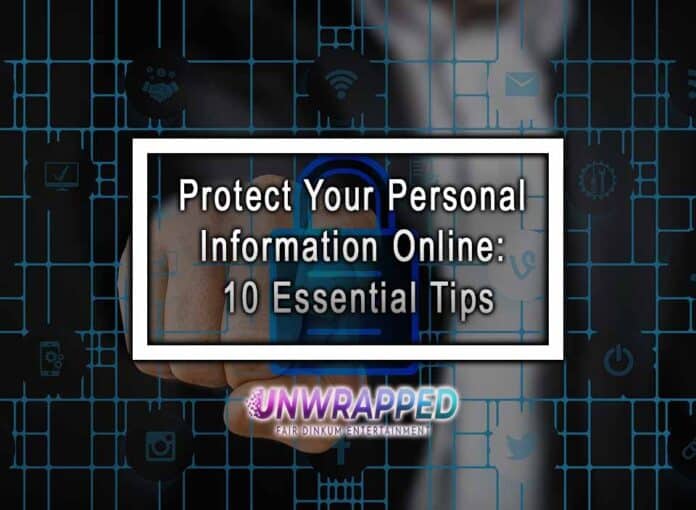Safeguarding Your Personal Information Online
With the increasing reliance on the internet for everyday tasks, it’s crucial to protect your personal information from falling into the wrong hands. In this digital age, safeguarding your privacy online is of utmost importance. Fortunately, there are simple and effective steps you can take to ensure your personal information remains secure. In this listicle, we’ll explore 10 essential tips to help you protect your valuable data and maintain your online privacy.
1. Create Strong and Unique Passwords
Using weak passwords is one of the most common security vulnerabilities. Make sure to create strong and unique passwords for all your online accounts. Combine upper and lowercase letters, numbers, and special characters to enhance the strength of your passwords. Avoid using common phrases, names, or easily guessable information.
2. Enable Two-Factor Authentication (2FA)
Two-factor authentication provides an extra layer of security for your online accounts. By enabling 2FA, you’ll require a second verification step, such as a unique code sent to your mobile device, in addition to your password. This adds an extra barrier against unauthorized access, even if your password is compromised.
3. Be Cautious with Public Wi-Fi Networks
When connecting to public Wi-Fi networks, exercise caution as they can be potential hotspots for cybercriminals. Avoid accessing sensitive information or logging into personal accounts when connected to public Wi-Fi. If necessary, use a virtual private network (VPN) to encrypt your internet traffic and ensure a secure connection.
4. Regularly Update Your Software and Devices
Keeping your software, apps, and devices up to date is crucial for maintaining their security. Developers often release updates to patch security vulnerabilities, so it’s essential to install these updates promptly. Enable automatic updates whenever possible to ensure you’re always protected against the latest threats.
5. Be Mindful of Phishing Attempts
Phishing attacks are a common method used by cybercriminals to trick individuals into revealing their personal information. Be cautious of suspicious emails, messages, or calls asking for sensitive data. Avoid clicking on unfamiliar links and always verify the authenticity of the sender before sharing any personal information.
6. Utilize Secure Browsing and Encryption
Ensure you browse the internet securely by using websites with HTTPS encryption. Look for the padlock symbol in the browser’s address bar, indicating a secure connection. Additionally, consider using a privacy-focused browser and consider using a Virtual Private Network (VPN) for an added layer of security.
7. Manage Your Social Media Privacy Settings
Review and adjust your social media privacy settings to control what information is visible to others. Limit the visibility of your personal details, such as your birthdate, address, and phone number, to trusted individuals only. Regularly review and delete unnecessary posts to minimize the amount of personal information available online.
8. Practice Safe Online Shopping
When shopping online, ensure you’re using secure websites. Look for reputable vendors with secure payment options, indicated by trust seals and secure checkout pages. Avoid entering your credit card information on unsecured websites or sharing unnecessary personal details during the checkout process.
9. Use Antivirus and Anti-Malware Software
Protect your devices from malware and viruses by using reliable antivirus and anti-malware software. Regularly scan your devices for potential threats and keep the software updated. This helps detect and remove malicious software that could compromise your personal information.
10. Regularly Back Up Your Data
Regularly backing up your data is an essential practice to protect your personal information from loss or unauthorized access. Store backups in secure locations, such as external hard drives or encrypted cloud storage services. In case of a data breach or device failure, you can easily restore your important files and documents.
Conclusion: Safeguard Your Personal Information and Stay Protected Online
Protecting your personal information online is a continuous effort that requires vigilance and adherence to best practices. By implementing these 10 essential tips, you can significantly reduce the risk of your personal information being compromised. Remember, a proactive approach to online privacy is key to staying protected in the digital world. Stay informed, stay cautious, and enjoy a safer and more secure online experience!
Incredible: 10 Must-Know Technology Tips and Tricks to Simplify Your Life










